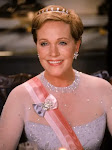Agatha Christie understood this truth very well. The plays she wrote of her own books are not the same as the books. In one case, she actually changes the identity of the murderer. In another, she changes the love interest. In another, she leaves two people alive. And so on...
The point here is that a movie is ALSO not a play (and, to make things more complicated, a stage drama is not a musical). One of my favorite Hitchcock's, Rope, points the difference. Based on a play, it was filmed in several long takes in a single location, like a play. I think it is a great experiment, but I can also see why it is seldom repeated. Although the film mimics a play, the elements that benefit a play are missing: spectacle and context.
Musical productions such as Webber's Phantom and Les Miserables the Musical provide continual spectacles--almost a series
of magic tricks--while the songs perform the same function as soliloquies: they encourage the audience to invest in specific characters.
productions such as Webber's Phantom and Les Miserables the Musical provide continual spectacles--almost a series
of magic tricks--while the songs perform the same function as soliloquies: they encourage the audience to invest in specific characters.
A stage drama relies far more on context, the overall experience. The eye can roam more naturally than it does with film. The result is about the drama's overall impact or purpose, though the stage type itself can make a difference. I saw Ian McKellan live in both Richard III and The Cherry Orchard during a study-abroad Theatre in London program. Richard III was captivating but mostly I remember it as a series of images. Cherry Orchard,
which was performed in a smaller theater with audience members on three
sides (a thrust stage), was gripping. I still remember hanging over the "standing
room only" area watching Ian McKellan WALK. I was utterly captivated.
I would have yet a different reaction to a movie version of either play.
Shaw's Pygmalion and then My Fair Lady showcase the changes that occur when a story moves from stage drama to musical to movie.
One major change is who Eliza ends up with. In the stage drama, she ends up with Freddy, not the professor. Shaw provides a long explanatory essay at the end of Pygmalion regarding Eliza and Freddy's future. Their ineptness at running a flower shop leads to the couple being continually supported by the Colonel and Higgins. Shaw remarks,
"And it is notable that though she never nags her husband, and frankly loves the Colonel as if she were his favorite daughter, she has never got out of the habit of nagging Higgins that was established on the fatal night when she won his bet for him. Galatea never does quite like Pygmalion: his relation to her is too godlike to be altogether agreeable."
Shaw is right at the human level. A movie, however, creates investment at the personal level. In My Fair Lady the movie, the camera focuses on the professor--the audience is drawn to him (quite literally) and invests in him. Since the couple have chemistry, the audience can "buy" into Eliza returning to him rather than going off with Freddy. (The musical numbers further that bond. Besides, in a musical, the leads always end up together.)
 On stage without music, Freddy is one of several people Eliza can go off with. He isn't really the point anyway. Professor Higgins isn't either. The point is the scenery or--if the director goes in for bare bones--the lack of scenery. It's the costumes. It's the cast. It's the banter at full volume. It's the entire stage.
On stage without music, Freddy is one of several people Eliza can go off with. He isn't really the point anyway. Professor Higgins isn't either. The point is the scenery or--if the director goes in for bare bones--the lack of scenery. It's the costumes. It's the cast. It's the banter at full volume. It's the entire stage.
On the same study abroad when I saw McKellan, I saw Heartbreak House (another Shaw) with Paul Scofield, Vanessa Redgrave, and Felicity Kendal (Good Neighbors). It was a fantastic production with the addition of music (the director was Trevor Nunn). What I remember now is the main characters standing about the sumptuous drawing room in the final scene. The combination of set and lighting created a portrait. (I remember equally sumptious sets from a production of The Importance of Being Earnest staged by SPAC's in-door theater.)



No comments:
Post a Comment